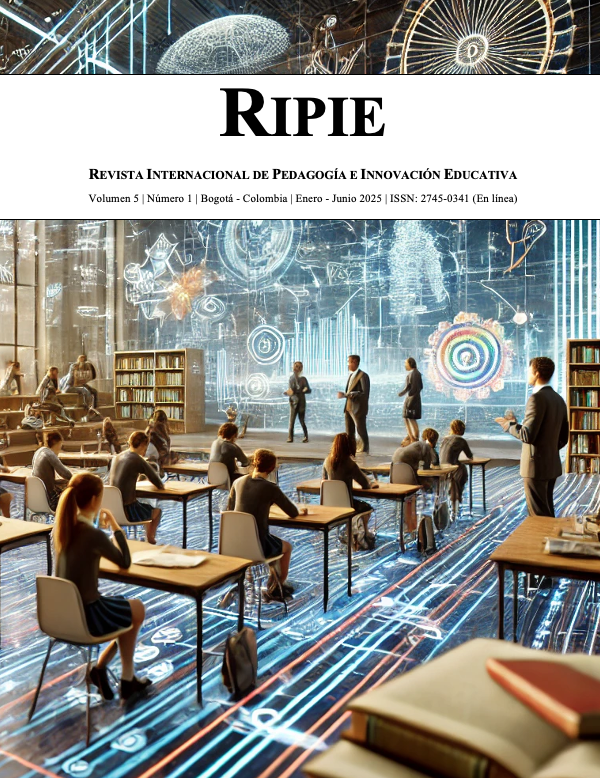The use of university catalogs as a didactic resource in teacher education
An analysis of the impact of children's and young adult literature in the classroom
DOI:
https://doi.org/10.51660/ripie51238Keywords:
Children’s and Young Adult Literature Catalog, teacher training, reading didactics, pedagogical skills, reading selection, literature teachingAbstract
This study examines the importance of the Children’s and Young Adult Literature Catalog as a fundamental tool in training future teachers. This resource facilitates the selection of appropriate readings and fosters the development of essential pedagogical skills for teaching reading at elementary and primary levels. The research is based on a qualitative review of studies focused on reading didactics and the use of specialized catalogs in teacher education programs. Selected studies highlight the catalog’s functionality as a practical and accessible tool that supports effective and contextualized literature teaching. Findings indicate that using the catalog helps future teachers develop greater confidence in selecting literary works and improves their teaching skills by providing them with a structured, curated framework of readings. In conclusion, the catalog stands out as an indispensable resource in teacher training, contributing to effective teaching and enhancing literary teaching practices. Its continuous implementation and content updates in university training programs are recommended to ensure its relevance and effectiveness.
Downloads
References
Breeding, M. (2023, 13 de diciembre). Tendencias tecnológicas en bibliotecas 2024: Los sistemas de gestión bibliotecaria. Nora Quiroz Liderazgo, bibliotecas y coaching.
Cabero Almenara, J. & Fernández Robles, B. (2018). Las tecnologías digitales emergentes entran en la Universidad: RA y RV. RIED. Revista Iberoamericana de Educación a Distancia, 21(2), 119. https://doi.org/10.5944/ried.21.2.20094
Cruzalta, L. R. M. (2008, mayo). La importancia de las colecciones de literatura infantil en la formación de futuros lectores. XXXIX Jornadas Mexicanas de Biblioteconomía AMBAC, Chihuahua, México.
De Rivero Manrique, E. R. (2022). Desarrollo de un sistema de recomendación basado en Support Vector Machine (SVM) para el desarrollo del pensamiento computacional en estudiantes del nivel primario de Educación Básica Regular (EBR). Universidad Católica de Santa María.
Díaz Villavicencio, A. M., Giles Marín, M. C. & Oyhenart Rodríguez, S. (2023). Aportes de la literatura infantil en el proceso de desarrollo del niño en su construcción como lector. Instituto de Formación Docente “Ercilia Guidali de Pisano”.
Giménez-Chornet, V. (2021). Gestión universitaria e información.
Hernández-Palma, H. G., Niebles-Nuñez, W., Pacheco-Ruiz, C. & Rojas-Martínez, C. (2020). Estrategias tecnológicas en bibliotecas universitarias como centros de recursos para la investigación y el aprendizaje en la región Caribe de Colombia. Formación Universitaria, 13(6), 51-60. https://doi.org/10.4067/S0718-50062020000600051
Martín, M. L. S. & Martorell, J. (2023). Innovación y tecnologías emergentes en bibliotecas académicas. Informe mundial 2023. REBIUN.
Martínez Molina, M. (2019). Análisis de la influencia de la literatura infantil en el desarrollo madurativo y emocional del alumnado de 2º curso de Educación Primaria. Universidad de Valladolid.
Muirragui Irrazabál, V. L. (2024). Implementación del modelo CRAI en las bibliotecas universitarias de la zona 5 de Ecuador: Estrategias para el desarrollo de un catálogo de servicios innovador como apoyo a la docencia. Universidad de Zaragoza.
Muirragui-Irrazábal, V., Rey-Martin, C., Camón-Luis, E. & León-Plúas, E. (2020). Servicios de apoyo bibliotecarios a la docencia universitaria pública acreditada en Ecuador.
Downloads
Published
Issue
Section
License
Copyright (c) 2025 International Journal of Pedagogy and Educational Innovation

This work is licensed under a Creative Commons Attribution-NonCommercial-ShareAlike 4.0 International License.
Articles are published under the terms of a licence that permits use, distribution and reproduction in any medium, provided that the original work is properly cited. Ed&TIC retains the proprietary rights to the published works and actively promotes the reuse of these works under the terms of the aforementioned licence, which encourages the dissemination of knowledge and collaboration in the academic community.


